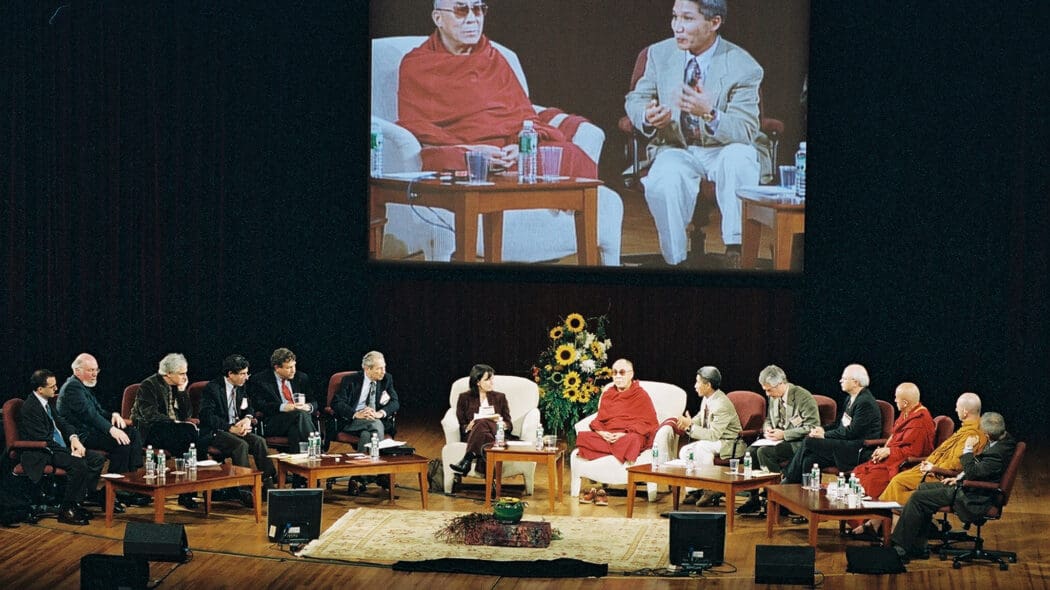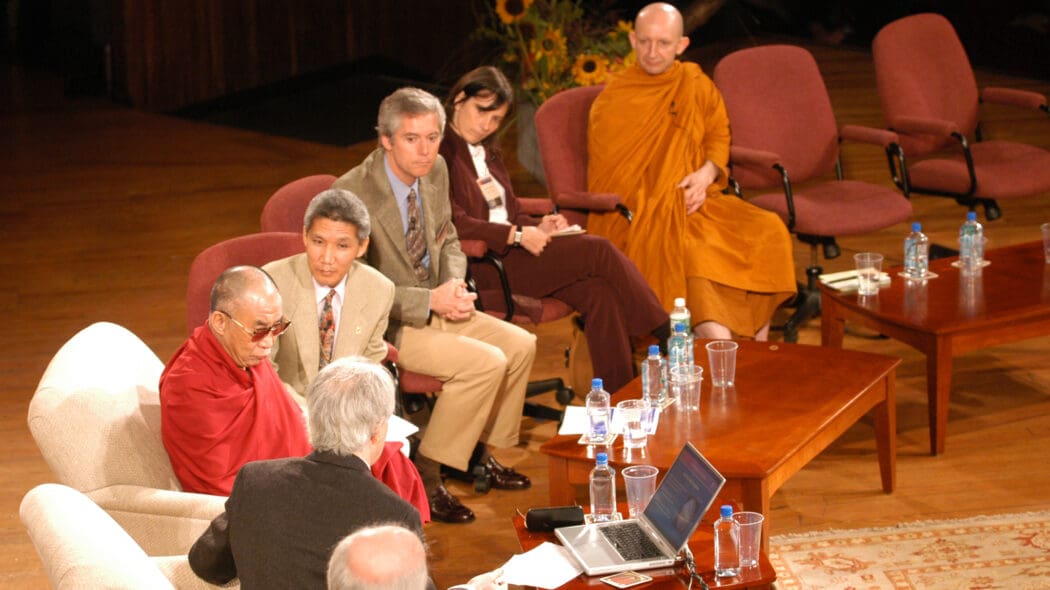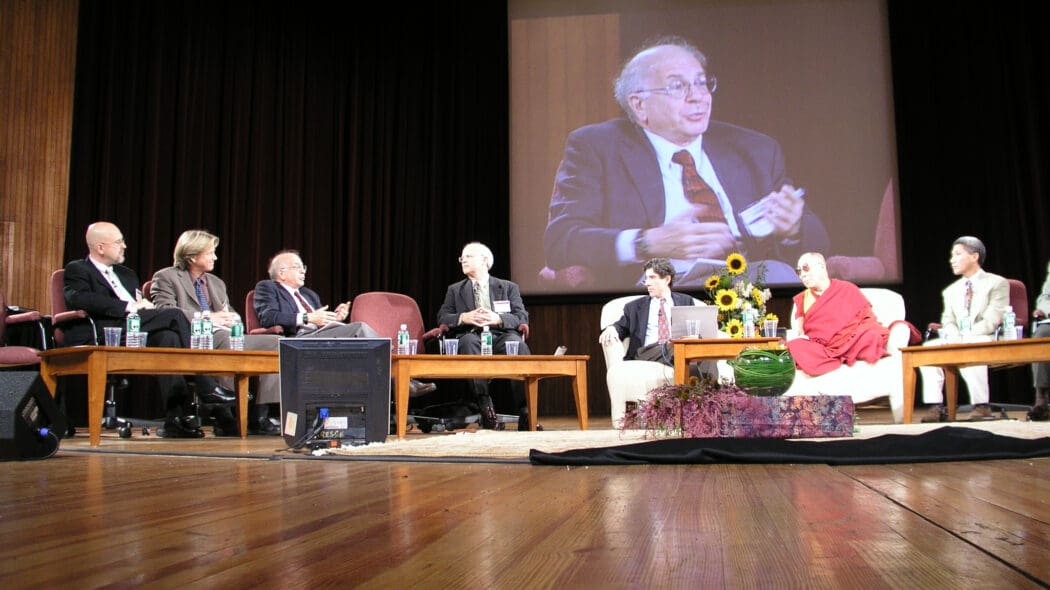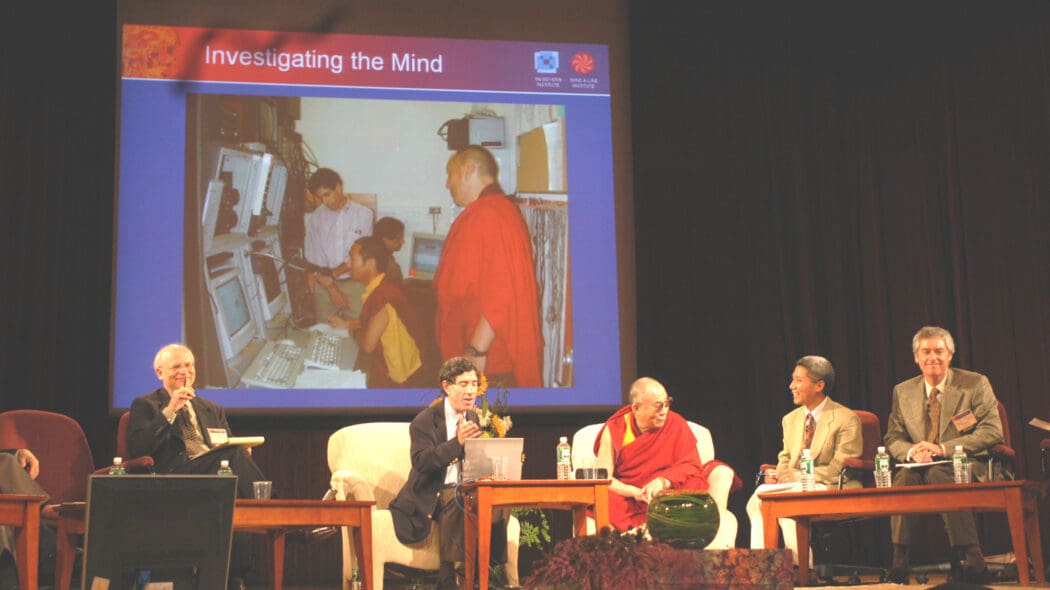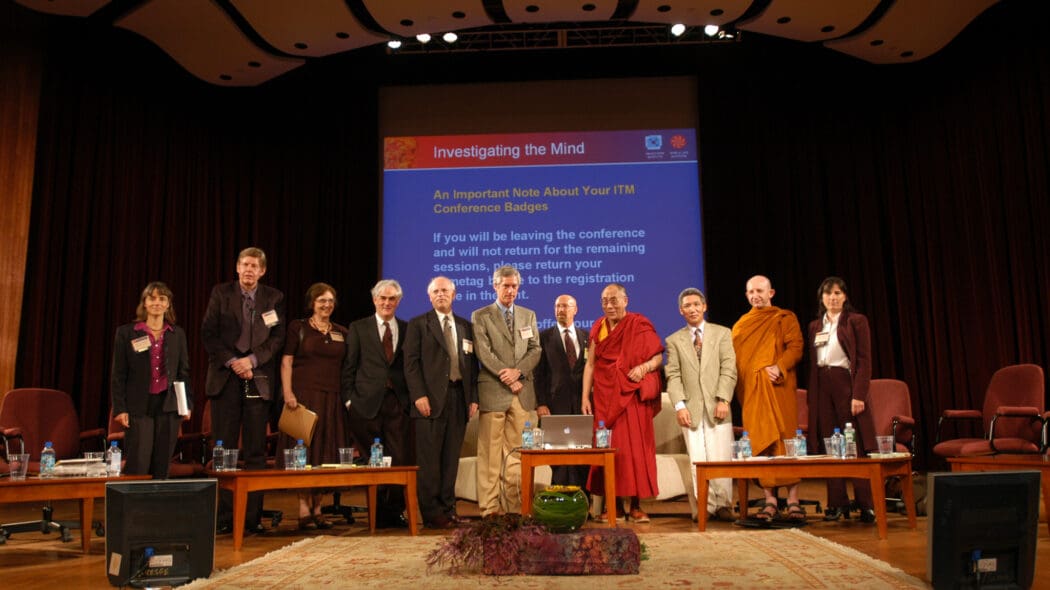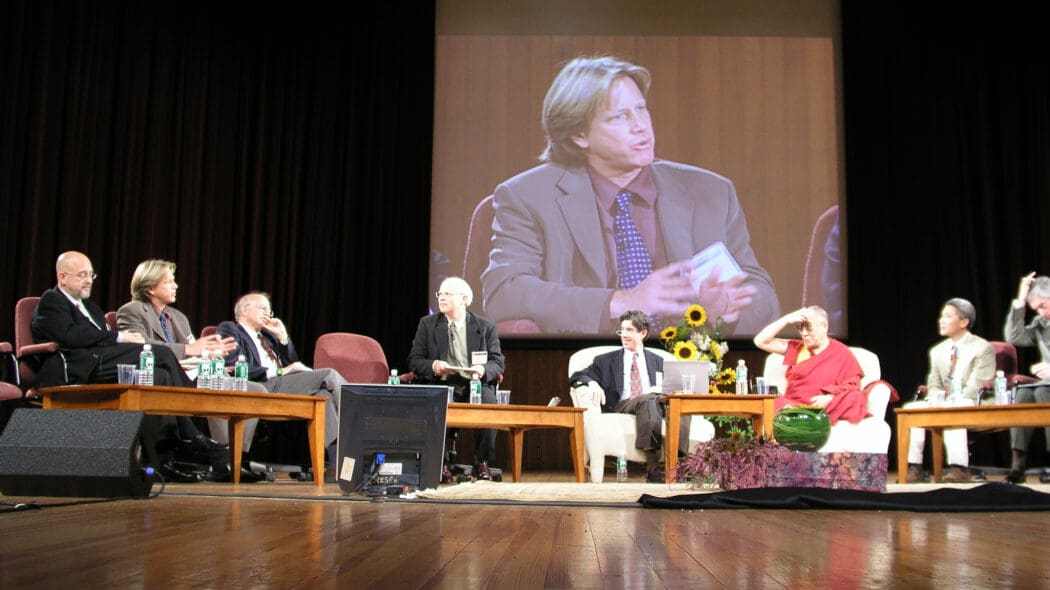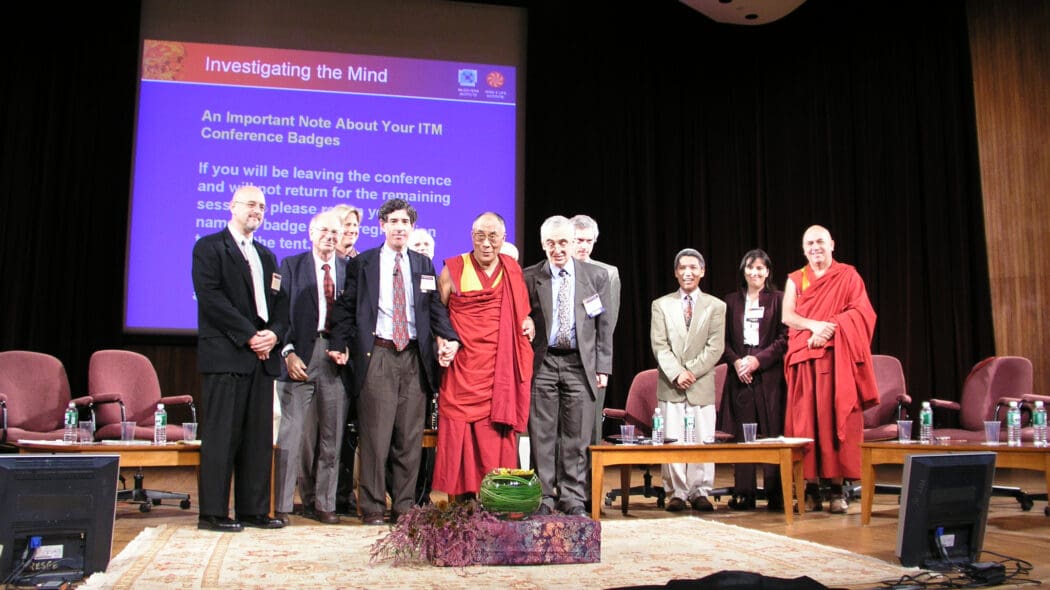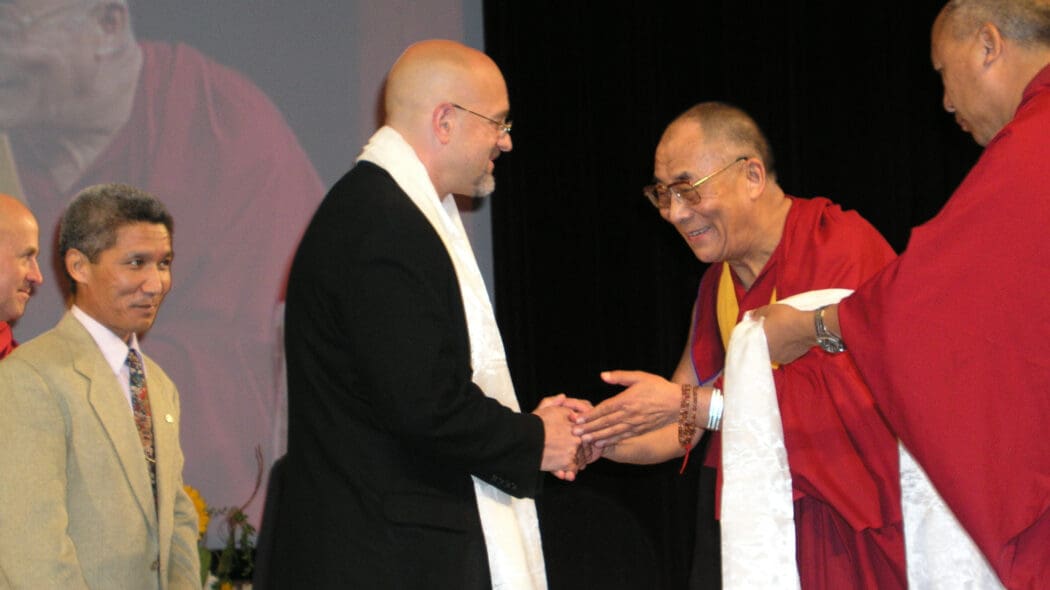Investigating the Mind
2003|Dialogue 11|Kresge Auditorium at MIT, Cambridge, Massachusetts
Investigating the Mind
Exchanges between Buddhism and the BioBehavioral Sciences on How the Mind Works
The purpose of this meeting is to explore in a public setting the value of collaborative research between scientists and Buddhists, and to examine how further collaborative research might be developed. Our strategy for this investigation is to choose three topics, which are actively being investigated by both science and Buddhism–Attention and Cognitive Control; Mental Imagery; and Emotion–and to explore these topics using the format of presentation, discussion and dialogue. A fourth session will delineate the scientific threads that have been developed and suggest methodologies for future collaboration.
Dialogue Sessions
Participants
Honorary Board Chair
- His Holiness the Dalai Lama
Interpreter
- Thupten Jinpa, PhD
- Alan Wallace, PhD
Speakers
- Ajahn Amaro
- Marlene Behrmann
- Jonathan Cohen
- Richard J. Davidson
- Georges Dreyfus
- John Duncan
- R. Adam Engle
- Daniel Gilbert
- Anne Harrington
- Jerome Kagan
- Daniel Kahneman
- Nancy Kanwisher
- Stephen M. Kosslyn
- Dacher Keltner
- Eric Lander
- David E. Meyer
- Matthieu Ricard
- Daniel Reisberg
- Evan Thompson
- Phillip A. Sharp
- Anne Treisman
- Charles M. Vest
- Arhur Zajonc


